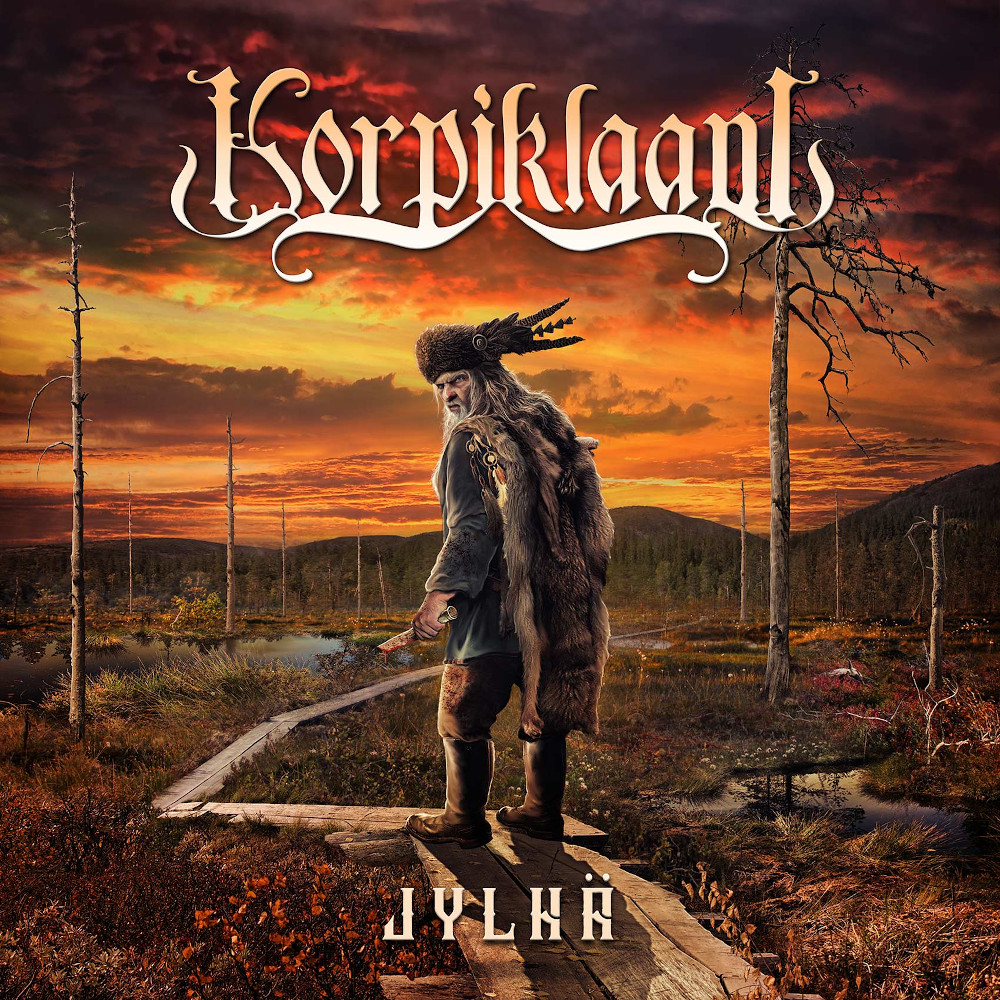 |
Country: Portugal
Style: Symphonic Doom Metal
Rating: 6/10
Release Date: 29 Jan 2021
Sites: Facebook | Instagram | Metal Archives | YouTube
I like this album and, after having heard a couple of songs, was always going to review it, as I love the mixture of genres it employs and want to share it as widely as possible. The core of King Baal's sound is doom metal, though there are points where they speed up a lot further than I'd expect for doom. It adds symphonic elements, most obviously through the operatic vocals of Joana Carvalho, but doesn't really end up in gothic territory, even with Carvalho's clean female soprano serving as a neat contrast to Narciso Monteiro's harsh growl in a classic beauty and the beast setup.
That lack of gothic texture, even with spoken word portions over choral backing, led me away from all the expected comparisons in gothic metal and towards Nova Mala Strana, a nineties prog rock outfit whose style was so dramatic and whose lead vocalist was so overtly operatic that the prog faded in my mind until it felt like I was listening to opera. As a metal band, King Baal are a lot heavier than Nova Mala Strana, but I ended up in the same place. This feels like opera to me, the music there to support a narrative that's delivered by Carvalho and, to a lesser degree, Monteiro.
This feeling also led me to wonder if this is a concept album. I see that it was inspired by the writings of King Solomon and features plenty of Satanic sections, in both English and Latin, but I wasn't able to follow the lyrics deeply enough to get an overall structure out of it. Some songs feel like they're part of a broader narrative, like the excellent The Grand Judgement, while others don't seem to move a story forward, like Let's Murder Together, which is something of a love song, even with that title. However, it's still telling a story and I felt that I should have been listening while looking at that story acted out on stage.
I wonder how the flaws I'm seeing would become more or less important in that sort of environment. I wanted a thicker sound out of this mix, for instance, but that's in the context of being a metal album. On stage, with broader orchestration, it might work better. Also, while I enjoyed Carvalho's vocals, I'd have liked more sections, like in Touched by the Kiss of Lucifer, where she duets with Monteiro, if the story allows for it. Also, if she's going to stay in her high register, adding a second female voice, like a contralto, would enrichen this sound too, again if the story allowed for such a character. After all, if it wants to be dramatic, then let's go all out.
One flaw that wouldn't vanish is that the band chose to sing in English, which may be a good decision to appeal to a broader market. However, Monteiro has a strong accent when he speaks and Carvalho's is fluent and clear but still a little deliberate, so there were definitely points here where I wondered if it would have been smoother in Portuguese. But enough with the flaws! I liked this album, more than it probably sounds like I did.
While the vocals dominate, I adored the variety in the music behind them too. The dramatic approach led to a strong use of dynamics and this moves seamlessly from almost mediaeval sections, like choral parts and the harp that introduces Fragments, all the way up through doom to heavy metal and even what's close to death metal on songs like Geradiel. I'd love to hear more, but this is King Baal's debut album and I guess this has to do for now. It's unusual, it's enticing and it's fascinating.








